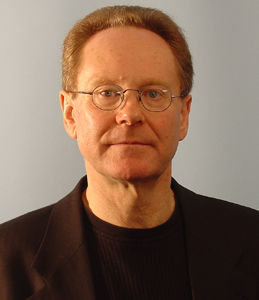Dr. Philip Mosley has been named distinguished professor of English and comparative literature at Penn State Worthington Scranton. A member of the PSWS faculty for over 26 years, he is the first faculty member at the campus to receive this honor.
A native of England who immigrated to the United States in 1988, Dr. Mosley holds a B.A. in English from the University of Leeds, and an M.A. in European literature and a Ph.D. in comparative literature, both from the University of East Anglia.
He is the author of several literature translations, including: The Intelligence of Flowers, by Maurice Maeterlinck; October Long Sunday, by Guy Vaes; Tea Masters, Teahouses, by Werner Lambersy; and The Book of the Snow, by Francois Jacqmin, which was shortlisted for the 2011 Griffin Poetry Prize.
In 2008, he was awarded the Prix de la Traduction Litteraire by the French Community of Belgium and is also the author of other books, including: Ingmar Bergman: The Cinema as Mistress; Split Screen: Belgian Cinema and Cultural Identity; Anthracite! An Anthology of Pennsylvania Coal Region Plays; and The Cinema Of The Dardenne Brothers: Responsible Realism.
Most recently, Dr. Mosley achieved a notable literary success, with his translation of Bruges-la-Morte, a 19th century Belgian novel, which has sold over 2,000 copies internationally.
He is also a Commonwealth Speaker for the Pennsylvania Humanities Council, and from 2008-11 served on the Council's Board.
He lives in the rural area between Scranton and Mount Pocono.
Distinguished Professors must be current, full-time active members of the faculty holding the rank of professor and be acknowledged leaders in their fields of research or creative activity.
This national and international leadership would be documented by (a) notable contributions to research published in leading journals and/or books and creative accomplishments widely recognized for excellence; (b) prestigious awards and citations; and (c) a substantial record of invited lectures or performances delivered at prestigious institutions; have demonstrated significant leadership in raising the standards of the University with respect to teaching, research or creative activity, and service; and, have demonstrated excellent teaching skills and contributed significantly to the education of students who subsequently have achieved recognition of excellence in their fields.
